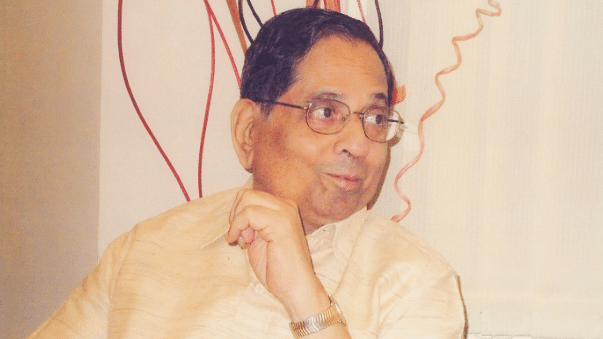New Delhi: All political parties are Hindu appeasing and this can be seen in their cooperation with the Liberhan Commission, which investigated the Babri Masjid demolition, retired IAS officer Madhav Godbole said.
Godbole, who has written a new book titled The Babri Masjid Ram Mandir Dilemma: An Acid Test for India’s Constitution, said it is unfortunate that even 27 years on, not one person has been held responsible for the demolition of the mosque.
“There is no information in public domain about any inquiry. As a country, what kind of a face do we present to the world when we say that we are a secular country?” Godbole said in an interview with ThePrint.
The former civil servant quit as union home secretary in March 1993, soon after the demolition of the 16th-century mosque, and 18 months ahead of his retirement.
Godbole said political outfits who profess to be secular such as the Bahujan Samaj Party and the Samajwadi Party were in power in Uttar Pradesh for 10 of the 17 years taken by the Liberhan Commission, but did not do much to push the investigation into the demolition.
“They could have brought material evidence on record. But all political parties are turning out to be Hindu-appeasing parties. It is not what they say. Their actions show it. It can be seen from their cooperation with the Liberhan Commission,” Godbole said.
He said while writing his book he was especially interested in reading evidence submitted before the Liberhan Commission by leaders such as P.V. Narasimha Rao, S.B. Chavan, Sharad Pawar and Arjun Singh. “I wrote to the home secretary and the cabinet secretary. I was told that the evidence is not traceable.”
He added, “We have effectively erased history. We ensure that not only do we rewrite history, but whatever we write cannot be challenged. My point is that all this should be placed in public domain and debated, but no political party or even the media seem to be interested.”
No political will by former PMs Rajiv Gandhi, Narasimha Rao to act
Godbole said former prime minister Rajiv Gandhi did not consider solutions put before him to resolve the simmering Babri Masjid-Ram Janmabhoomi tussle.
“He seemed young with a fresh mind, but was a disappointment,” Godbole said.
Of the solutions, for instance, Karan Singh, who was a minister at the time, suggested that the outer periphery of the mosque should be used for a Ram temple, a proposal also made by Syed Shahabuddin, a member of the Babri Masjid Action Committee. Shahabuddin suggested that the Centre should take over the mosque to preserve it, said Godbole.
Later, then PM P.V. Narasimha Rao did not take action despite there being a detailed contingency plan to protect the mosque.
“There was a contingency plan to deal with the situation by imposing President’s rule in Uttar Pradesh… There were plans of mobilising 10 lakh karsevaks. We wanted to make sure that the mosque is protected before they arrive,” Godbole said.
He added the suggestion was to take a cabinet decision to implement the contingency plan in the dead of the night.
“There was no political will,” said the former civil servant, who has detailed in his book how various constitutional bodies like the Parliament, central and state governments and the governor failed to discharge their duties.
Also read: Intelligence Bureau could’ve saved Babri Masjid by alerting PM Rao to demolition conspiracy
‘No option but to abolish Article 370’
Godbole is in the process of writing another book on Article 370, which was abrogated by the Narendra Modi government last month.
“There seems to have been a deliberate and otherwise misunderstanding about Article 370. It was not meant to give special status to Jammu and Kashmir. It was about the manner in which the Indian constitution was to be extended to J&K over a period of time in tandem with the state government and presidential orders… The central agreement was at fault, not Article 370,” Godbole said, slamming the 1952 Delhi agreement as “preposterous”.
“I admire former PM Jawaharlal Nehru but do not understand how he conceded on a few points, such as separate citizenship for J&K. It was said, this was because of Kashmir’s cultural distinctiveness, but that argument can be made for every state in India…
“Similarly, even states like Karnataka and Tamil Nadu have demanded different flags,” Godbole said, adding if the government wanted to ascertain the wishes of the people, it should have been through a referendum.
Godbole also said the recent communication blockade in J&K too had to be implemented for law and order purposes.
“The government erred on the right or the wrong side depending on which side of the table you are on. But, if these precautionary actions were not taken there could have been major law and order issues,” he said, adding social media instigates people and spreads panic more than anything else.
Godbole, however, maintained a strong objection to the Modi government’s move to bifurcate J&K into two Union territories.
Also read: The erasure of the Babri Masjid actually began six years before its demolition
